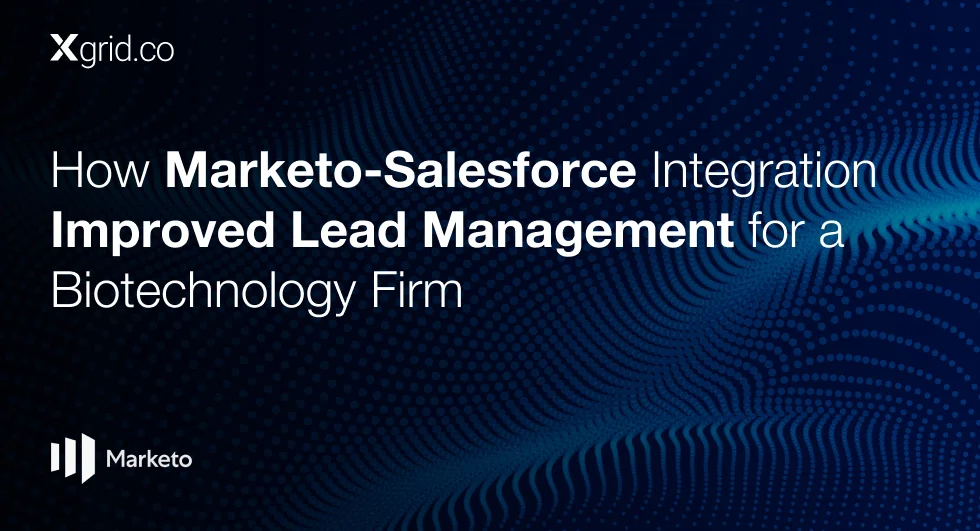Utilizing Marketo for Regional Segmentation and Personalization
“It’s about finding the right data and using it the right way.” – AJ Sedlak, Marketing Automation and MarTech Director
Why Segmentation Matters in Marketo
AJ Sedlak highlights the importance of segmentation in email marketing campaigns. With Marketo, marketers can go beyond the basic “batch and blast” approach, targeting specific groups based on demographics, behaviors, or regional differences.
According to AJ, precise segmentation is crucial for maximizing campaign effectiveness and maintaining a healthy distribution list. “Sending the right emails to the right people will give you better results,” he says.
AJ explains that segmentation is key to reducing unsubscribes and increasing engagement. By ensuring that only relevant content reaches specific segments, marketers can improve open rates, clicks, and conversions.
Marketo’s powerful segmentation tools make it possible to create lists that reflect the diverse interests and needs of different customer groups, whether they are segmented by region, product interest, or engagement level.
Finding the Right Balance in Segmentation Efforts
While AJ is an advocate for effective segmentation, he warns against over-segmentation and the resulting complexity. “Don’t go too far down this journey of hyper-segmentation,” he cautions.
Excessive segmentation can lead to an inefficient use of resources, especially when it involves dynamic content that may not deliver a proportional return on the effort invested.
Marketo’s dynamic content capabilities allow marketers to customize messaging within a single campaign based on different segments.
However, starting with Marketo consultants can be beneficial in striking the right balance. Consultants can guide teams to use Marketo’s segmentation effectively without overwhelming resources, refining strategies as campaigns evolve.
However, AJ advises starting with a basic level of segmentation and gradually refining it based on campaign insights. He emphasizes the importance of experimentation to identify which segments deliver the most significant impact. “Start off simply, experiment, and make sure each step you take is a solid step,” he suggests.
Maximizing Personalization with Dynamic Content in Marketo
Personalization is another area where Marketo shines, particularly with its dynamic content features. AJ discusses how Marketo’s dynamic content can be used for regional differences, allowing marketers to tailor messaging based on language, location, or other region-specific criteria.
However, he emphasizes the need to think ahead when creating segments, as Marketo allows only a finite number of segments for dynamic content.
Effective personalization in Marketo depends on understanding what information is truly valuable. AJ advises against collecting data for the sake of it and recommends focusing on insights that drive meaningful engagement.
By striking the right balance between segmentation and personalization, marketers can use Marketo to create targeted, relevant campaigns that resonate with different audience groups.
Key Insight: Effective use of segmentation and dynamic content in Marketo involves balancing the effort with the impact, focusing on data that genuinely enhances personalization.
Conclusion
Marketo’s segmentation and dynamic content features empower marketers to deliver targeted, relevant messaging to various audience segments. By starting with basic segmentation, experimenting, and refining strategies based on data-driven insights, companies can optimize their marketing efforts and drive better engagement. In a world of information overload, Marketo’s capabilities provide the tools necessary to communicate effectively with the right audience.
Downloads
Article (PDF-276 KB)MOST POPULAR INSIGHTS
- How Marketo Strengthened Data Hygiene and Marketing Efficiency for a Global Telecom Company
- How Marketo-Salesforce Integration Improved Lead Management for a Biotechnology Firm
- How a Tech Company Used Marketo to Refine ABM Strategies for Sales Engagement
- How Marketo Campaigns Were Streamlined with Templates and Tokens
- How Marketo Solidified Marketing Insights with Custom Attribution Models
Related Articles
Related Articles

Established in 2012, Xgrid has a history of delivering a wide range of intelligent and secure cloud infrastructure, user interface and user experience solutions. Our strength lies in our team and its ability to deliver end-to-end solutions using cutting edge technologies.
OFFICE ADDRESS
US Address:
Plug and Play Tech Center, 440 N Wolfe Rd, Sunnyvale, CA 94085
Dubai Address:
Dubai Silicon Oasis, DDP, Building A1, Dubai, United Arab Emirates
Pakistan Address:
Xgrid Solutions (Private) Limited, Bldg 96, GCC-11, Civic Center, Gulberg Greens, Islamabad
Xgrid Solutions (Pvt) Ltd, Daftarkhwan (One), Building #254/1, Sector G, Phase 5, DHA, Lahore




